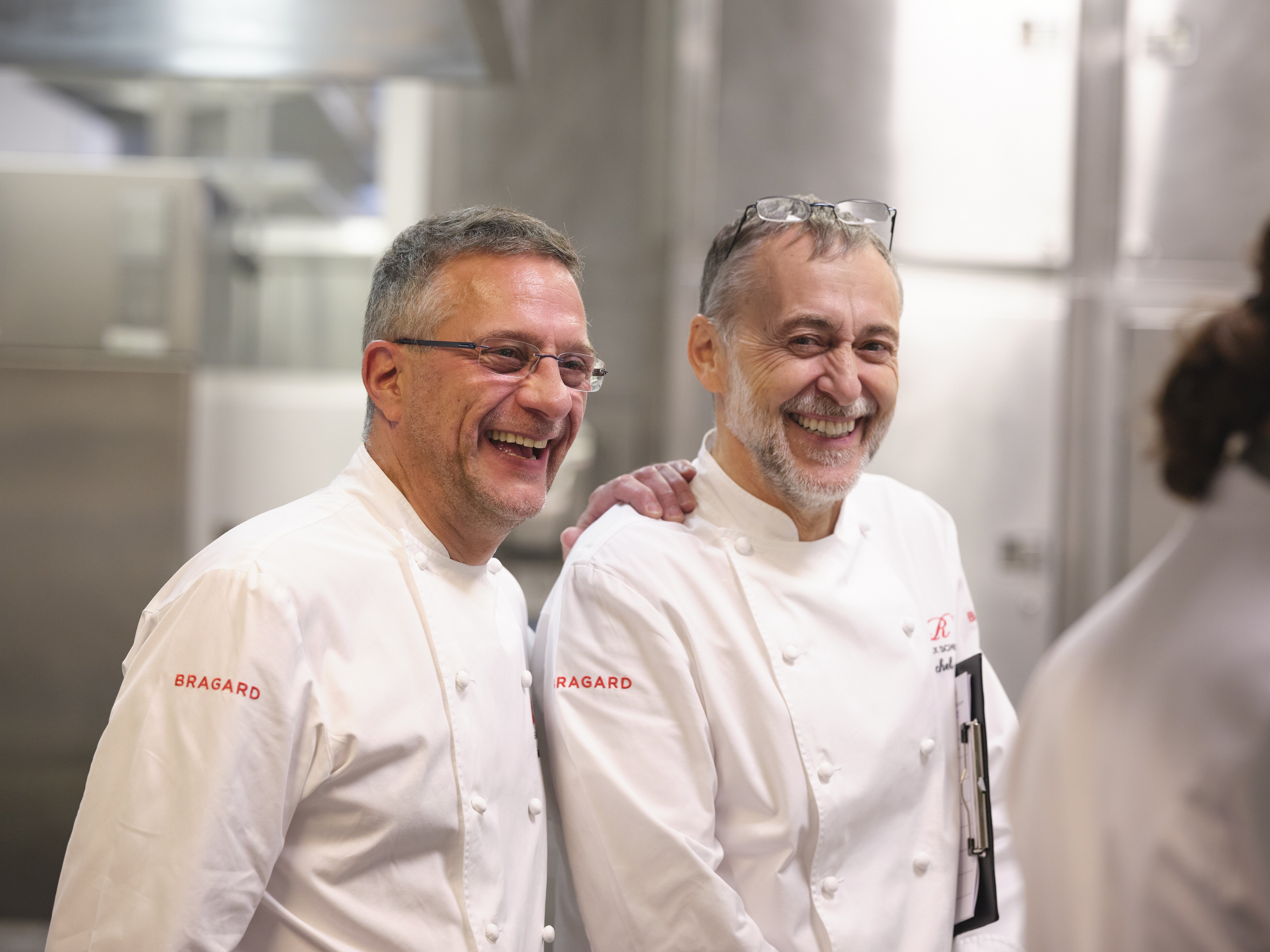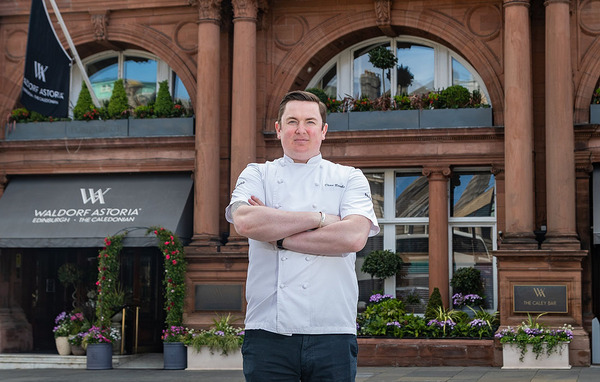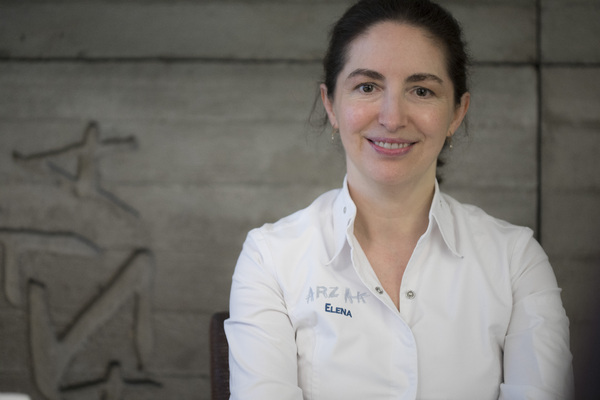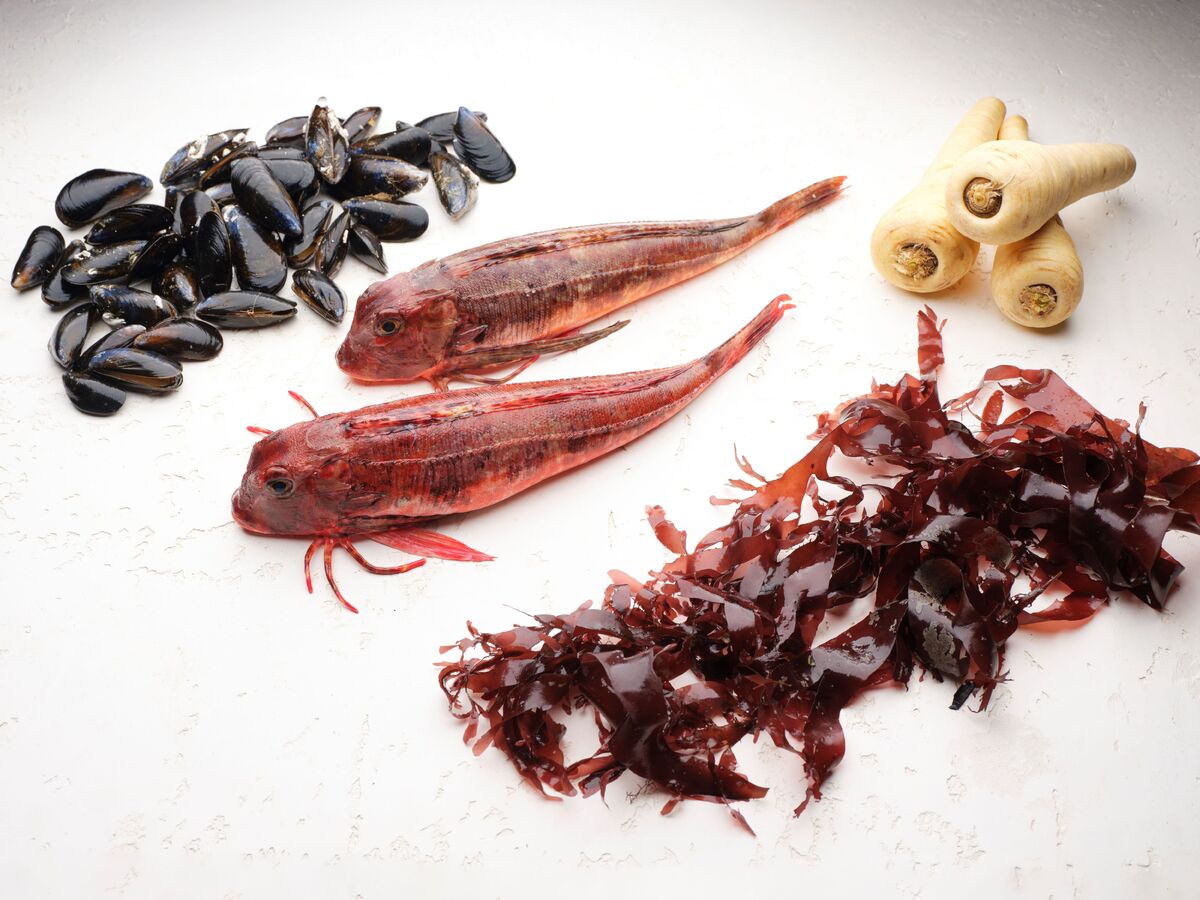Roux Scholarship 2023 launches with call for diverse entries
The 2023 Roux Scholarship has opened for entries and introduced several changes designed to encourage a more diverse range of chefs to take part.
Chairman Alain Roux said the competition “needed to evolve” and wanted to encourage chefs from “any background or type of kitchen” to enter.
The scholarship was founded by Michel and Albert Roux in 1984 but has only had one female winner in its 39-year history, Mercy Fenton in 1994.
There have historically been fewer female regional and national finalists than male, and the changes have been designed to make the competition more accessible to all types of chefs across the UK.
Alain said: “It’s normal that after all these years people might start to think [the competition] is outdated.
"We wanted to move things on and get away from having that stamp of being all about French food. Of course, we love it, but you can use those techniques in pretty much every style of cooking around the world.”
Competition changes
This year’s winner will have a choice between two prizes: either a two-month stage at any three-Michelin-starred restaurant anywhere in the world or a bespoke training programme tailored to their career goals.
This could include learning Japanese knife skills in Tokyo or chocolate making in France and can be taken at a convenient time in the chef’s work schedule.
The winner will also receive up to £12,000 to support their career development and prizes from the competition’s sponsors.
Some £6,000 of this will be awarded to them on completion of 15 months' service with their current employer after they win. If the chef takes up a new role in that time, the funds will be awarded to the original employer to help in the development of the remaining brigade.
The changes have been brought in to acknowledge that many chefs will be unable to take months off work if they are parents or have caring responsibilities, and their employers may be unable to spare them due to staffing shortages.
The challenge in the national final has also been tweaked to stop entrants feeling daunted by an Escoffier-inspired recipe.
Chefs will now be asked to prepare a key ingredient and bring their own interpretation to the dish, using classical French techniques. The product will be chosen from UK produce and served with accompaniments drawn from a set list of other ingredients.
Alain said: “You don't need to work in a Michelin-starred kitchen to enter. The Roux Scholarship is a challenging competition, and we want people to realise that any style of chef can reach that top level, whether they work in a hospital, pub or care home. It can be enriching personally and professionally, and you can gain so much value from entering, even if you don’t get that far.”
Whitepaper discussion
Last month the competition held a roundtable discussion with chefs including Sally Abé (consultant chef at London's Conrad St James hotel), Rachel Humphrey (executive head chef of Le Gavroche and Scholarship judge), and Alisha Pereira (head banqueting chef at the Hilton Bankside hotel) to discuss the issues facing female chefs in Britain and how the scholarship could address these to widen its appeal.
This produced a whitepaper which will be used to help shape the future of the competition.
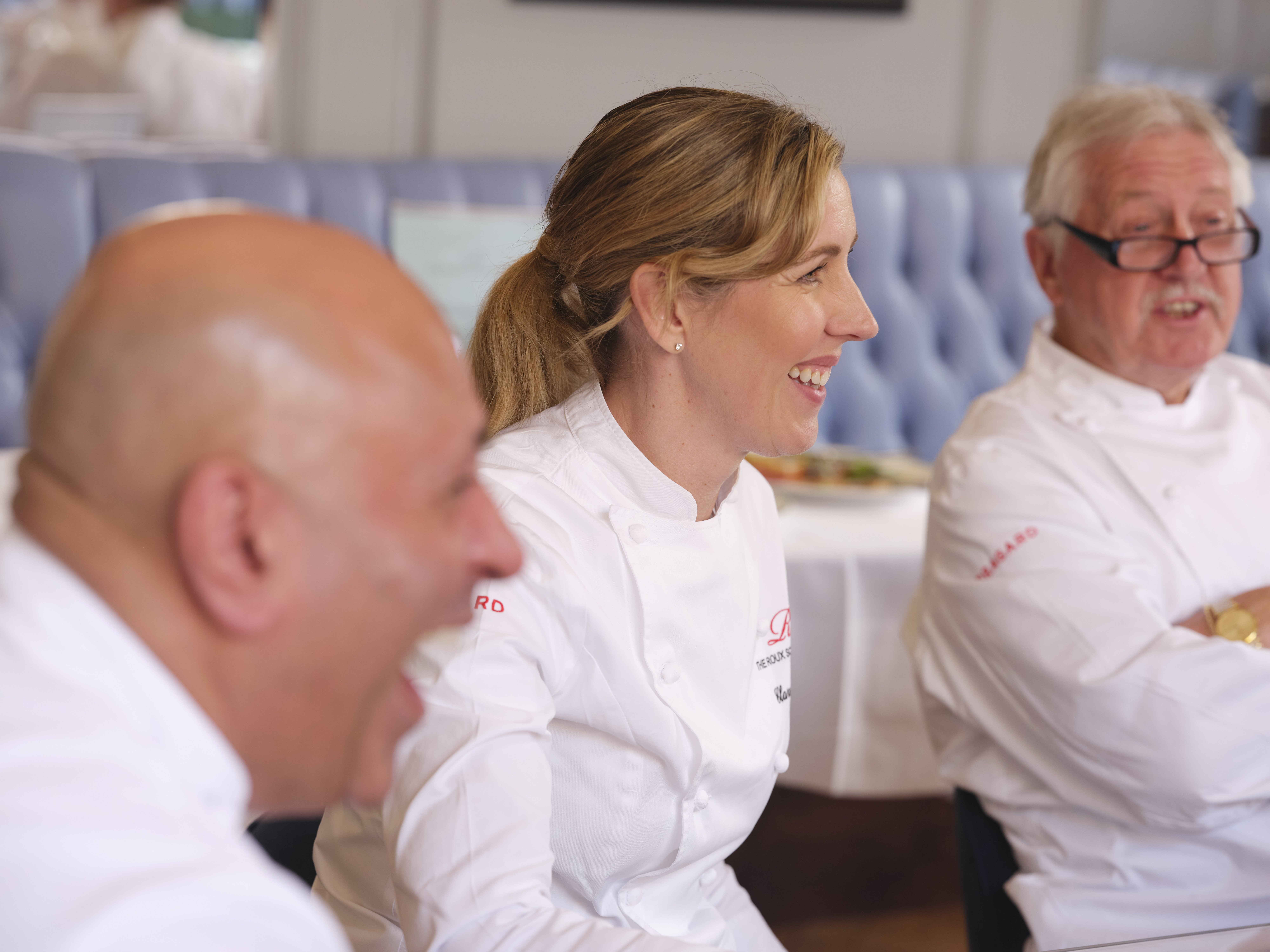
It found that there was a perception culinary competition judges and winners were seen as a ‘boys club’, despite the scholarship judging panel having invited chefs including Angela Hartnett, Clare Smyth, and Humphrey to take part.
Over the course of the 2023 competition the scholarship will work to develop links with chefs who could form part of a female mentorship programme.
Alain added: “The competition is open to everybody, and we want to spread the word and make sure people are not put off. We want to give everyone the same chance so they can win.”
Recipe challenge
The 2023 competition has asked entrants to create a recipe for four people using the following ingredients and criteria:
• A striploin of dry-aged Heritage beef (without bones), weighing between 800g-900g (maximum 1kg joint) cooked and served either whole or in multiple cuts.
• In addition, use one beef offal (not veal), either heart, tongue, or kidney; together plated with two simple or composed garnishes/accompaniments. One of them must include chicory (Belgian endive) and the other can be a garnish/accompaniment of the contestant’s choice. One of these can be served separately, if preferred.
• A sauce must accompany the dish.
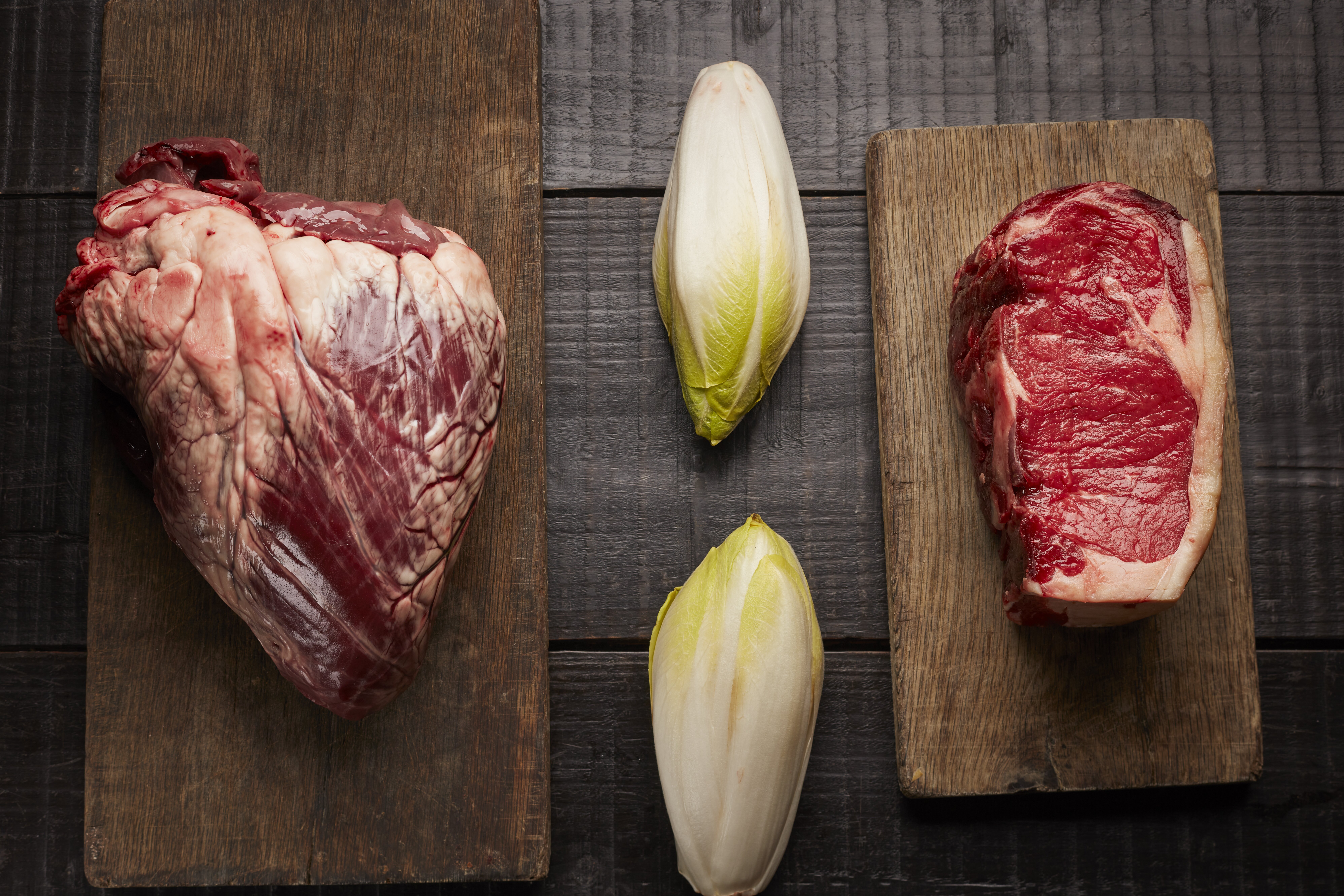
This year the age limit for the competition has been raised to 31-years-old to compensate for the time lost due to the coronavirus pandemic. Chefs can enter if they turn 31-years-old on or after the 1 February 2023.
Chefs have until midnight on 31 January 2023 to submit their recipes, which will be judged blind, via the online application system.
Regional finals will take place at University College Birmingham and the University of West London on 9 March ahead of the national final at Westminster Kingsway College in London on 3 April.



